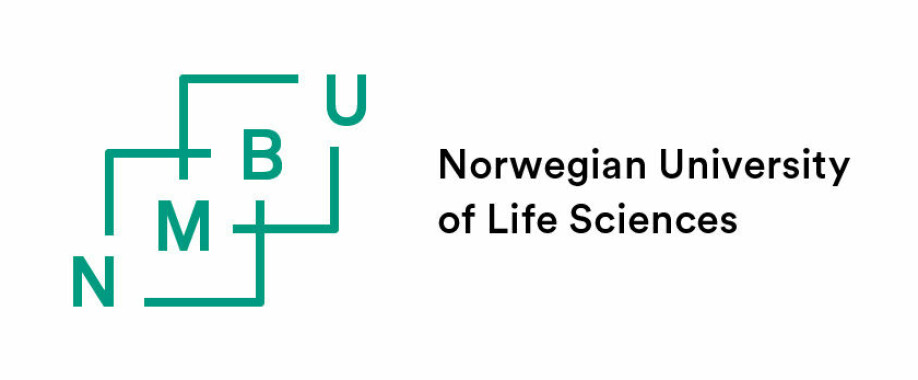Ledig stilling ved NMBU
PhD research fellowship within computational analyses of genome regulation
Deadline: 17.10.2019
Are you interested in understanding how whole genome duplications shape evolution of genome regulation? We seek enthusiastic and motivated candidates for a PhD-scholarship in computational biology and comparative genomics.
About the position
The Faculty of Biosciences is inviting applications for a 3-year PhD research fellowship within computational analyses of genome regulation.

The position is funded with strategic funds from NMBU and will be linked to the Rewired https://www.nmbu.no/fakultet/biovit/forskning/store-forskningsprosjekt/node/34360 and Transpose https://www.nmbu.no/en/projects/node/35588 projects funded by the Norwegian Research Council. The aims of these projects are to understand how whole genome duplications drive shape evolution of genome structure and function, using recently duplicated fish genomes as model systems.
Specifically, this PhD project will specifically focus on evolution of gene regulation after genome duplication, both at the levels of alternative splicing as well as epigenetic control of tissue and life stage specific gene expression.
The position is mainly based within the CIGENE environment https://cigene.no/, which includes comprehensive molecular lab facilities and an internationally strong genomics and computational biology research group. In addition, the project will be developed in tight collaboration with the Centre for Genomic Regulation (CRG), in Barcelona (Spain), involving mobility between NMBU and CRG.
Main tasks
The main tasks will be to perform large scale comparative analyses of transcriptomics and epigenomics data across multiple fish species with recently duplicated genomes (salmonids and suckers) and their close outgroups. The candidate will work in close collaboration with PhD-students and postdoctoral researchers at the NMBU, as well as research groups at The Roslin Institute (University of Edinburg), and Centre for Genome Regulation in Barcelona (Spain).
For more information, please contact:
- Simen Rød Sandvesimen.sandve@nmbu.no
You need to have
The successful applicant must meet the conditions defined for admission to a PhD programme at NMBU. The applicant must have an academically relevant education corresponding to a five-year Norwegian degree programme, where 120 credits are at master's degree level. The applicant must have a documented strong academic background from previous studies and be able to document proficiency in both written and oral English. For more detailed information on the admission criteria please see the PhD Regulations and the relevant PhD programme description.
The applicant must document expertise and interest in the research subject.
Required Academic qualifications
- Master degree in genomics, bioinformatics, evolutionary biology, or similar
- Experience with analyses of genomics/transcriptomics/ epigenomics data (i.e. functional omics data)
- Fluency in at least one programming language (e.g. R, python, perl, etc)
The following experiences and skills will be emphasized:
- Experience with comparative analyses of omics data across species
- Strong statistical skillset
- Ability for independent work displaying initiative and careful creative thought.
- Analytical and academic approach to research questions
You need to:
- have good collaborative skills
- be proficient in English, both written and spoken.
Remuneration and information
The position is placed in government pay scale position code 1017 PhD Fellow. PhD Fellows are normally placed in pay grade 54 (NOK 479.600,-) on the Norwegian Government salary scale upon employment and follow ordinary meriting regulations.
Employment is conducted according to national guidelines for University and Technical College PhD scholars.
For further information, please contact:
- Dr. Simen Rød Sandve on telephone (+47) 94870082, e-mail: simen.sandve[at]nmbu.no or visit srsandve.org
Information for PhD applicants and general information to applicants
Application
To apply online for this vacancy, please click on the 'Apply for this job' button above. This will route you to the University's Web Recruitment System, where you will need to register an account (if you have not already) and log in before completing the online application form.
Application deadline: 17th October 2019
Applications should include (electronically) a letter of intent, curriculum vitae, full publication list, copies of degree certificates and transcripts of academic records (all certified), and a list of two persons who may act as references (with phone numbers and e-mail addresses). Publications should be included electronically within the application deadline. The relevant NMBU Department may require further documentation, e.g. proof of English proficiency.
Printed material which cannot be sent electronically should be sent by surface mail to the Norwegian University of Life Sciences, Faculty of Biosciences, P.O. Box 5003, NO-1432 Ås, within 17th October 2019. Please quote reference number 19/04470.
If it is difficult to judge the applicant’s contribution for publications with multiple authors, a short description of the applicant’s contribution must be included.






